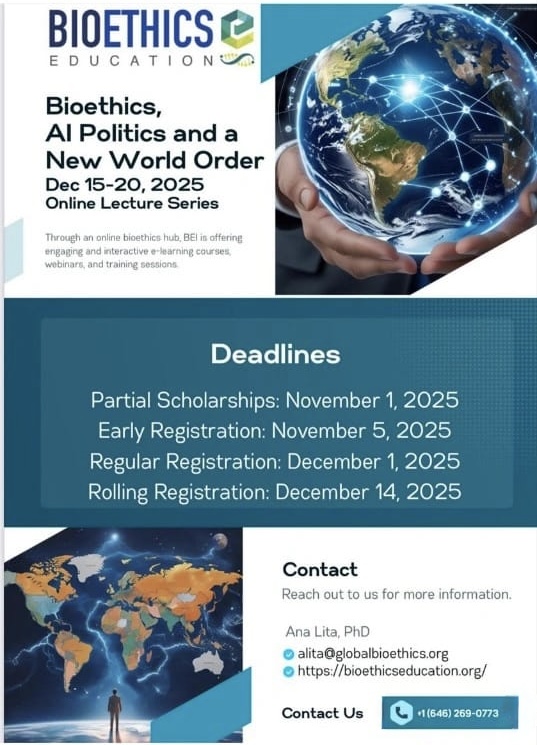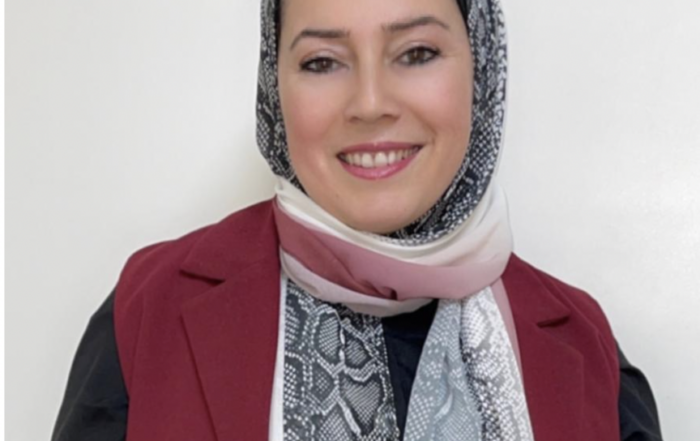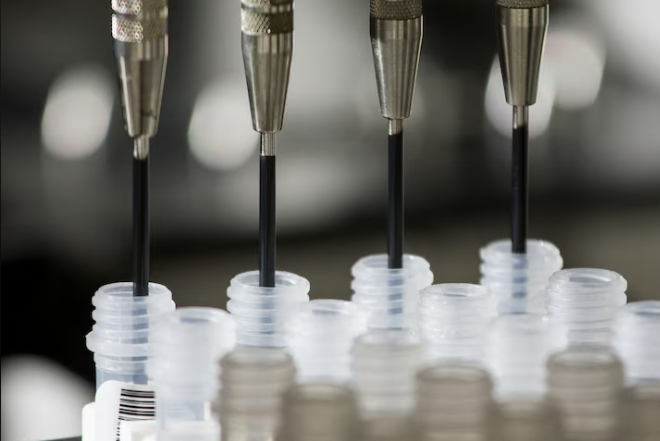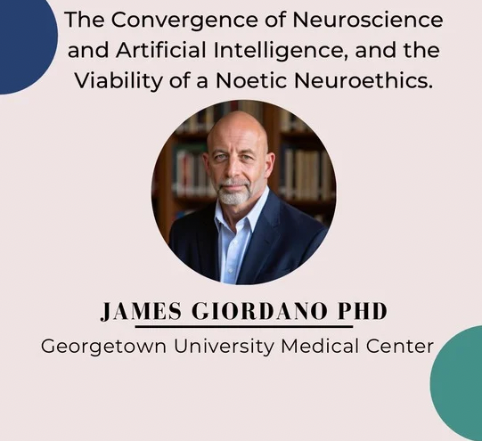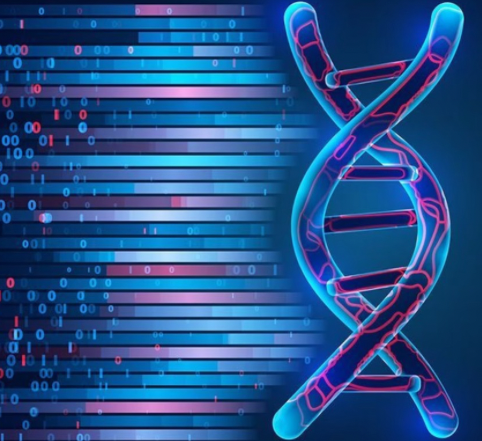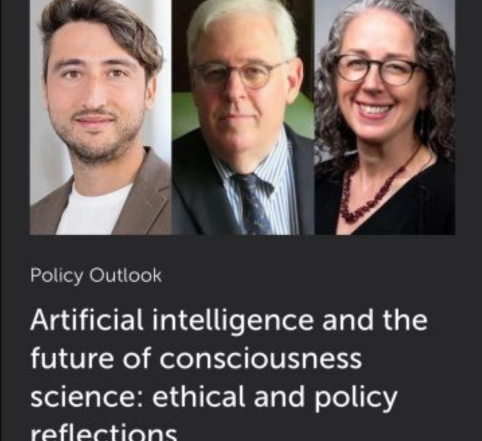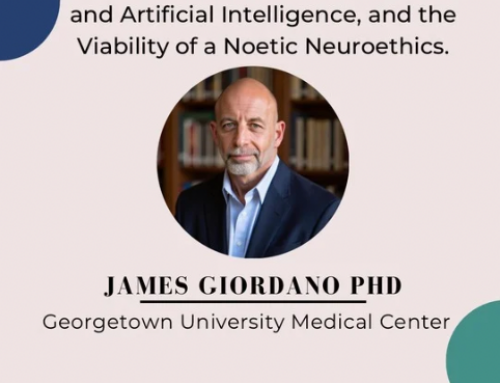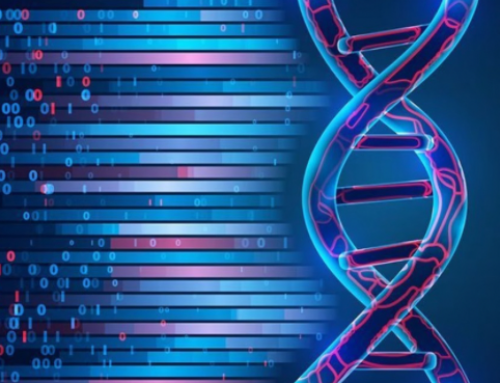Looking for a bioethics educational opportunity? Bioethics Education International (BEI) is now accepting applications for their online winter school taking place December 15th-20th: Bioethics, AI Politics, and a New World Order. Scholarship Deadline: August 30, 2025.
The intersection of bioethics, AI politics, and the emerging new world order is a complex and multifaceted issue. Here’s a breakdown of the key aspects:
Bioethics in the Age of AI
Bioethics can serve as a moral compass for emerging technologies like AI, ensuring that technological advancements align with human values and dignity.
AI can aid bioethics by analyzing vast amounts of data, identifying patterns, and providing insights that can inform decision-making in complex medical and ethical dilemmas.
Researchers are exploring ways to build morality into AI systems, using approaches like top-down, bottom-up, and hybrid methods to ensure that AI decisions reflect human moral values ¹.
Global Governance and Cooperation
The increasing use of AI in various sectors, including healthcare and defense, raises questions about global governance and cooperation.
International collaboration is essential for developing robust bioethical frameworks that can address the challenges posed by AI and other emerging technologies.
Organizations like Bioethics Education International (BEI) are working to promote global cooperation and discussion on bioethics and AI politics through initiatives like the Online Winter School.
Geopolitics and AI
The development and deployment of AI are influenced by geopolitics, with countries like Germany investing heavily in AI research and development for defense and other applications.
The use of AI in warfare and other areas raises ethical concerns and highlights the need for robust frameworks to govern AI development and deployment.
The US-China trade war has also impacted the development and sale of AI chips, with companies like Nvidia navigating complex regulatory environments ² ³.
Key Challenges and Opportunities
Balancing national interests and global solidarity: Ensuring that AI development and deployment prioritize human well-being and safety while respecting national interests and sovereignty.
Addressing ethical dilemmas: Developing frameworks for addressing complex ethical dilemmas posed by AI and other emerging technologies.
Promoting global cooperation: Fostering international collaboration to address the challenges and opportunities presented by AI and bioethics.
Other Posts
The Bioethics Education International Winter School 2025 provided a multidisciplinary forum for examining ethical challenges arising from biomedical research, emerging technologies, and their broader social and political implications. Through keynote lectures, thematic sessions, film screenings, [...]
The recently released FY 2026 National Defense Authorization Act (NDAA) marks a watershed moment in the integration of biotechnology as a core element in the current and near future development of United States (U.S.) defense [...]
We are honored to have Dr. James Giordano PhD DPhil as your guest speaker at the upcoming school online. The convergence of neuroscientific methods and knowledge with iteratively autonomous agentic AI systems engenders profound epistemic, [...]
The recent announcement that artificial intelligence (AI) will be employed to surveille and support compliance with the Biological Weapons Convention (BWC) reflects both the capabilities for data collection, integration and analysis that such systems enable, [...]
The convergence of AI and consciousness science demands anticipatory, globally inclusive governance to promote ethical progress and address issues of neuroprivacy, bias, and equity. Scientific interest in consciousness is rapidly accelerating, propelled by new neuroimaging, electrophysiological, [...]
Physicists have recently developed an MRI scanner that uses quantum-based detection that can reveal molecular interactions, detect singular cancer cells, and achieves processes previously only visible under electron microscopes. However, this new technology has implications [...]

